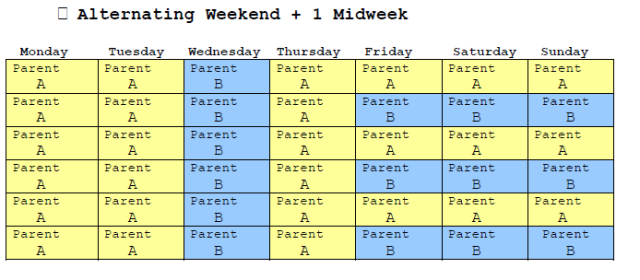Sample Florida Child Custody Schedules
In each Florida family law case (such as divorce or paternity) that involves the custody of a child, Florida law requires that a parenting plan be established. One of the most important elements of a parenting plan is the child custody schedule, now known as a “time-sharing” schedule.
Family Law Tip: You should never let a judge decide your child’s time-sharing schedule. A judge does not know your family dynamics and bases such decisions on very limited information, and usually the judge is seeing parents, especially divorcing parents, at the worst time in their lives. Instead, you and your co-parent should use a private form of dispute resolution, such as collaborative family law.
As I tell clients who come to my Tampa office, there are many different types of time-sharing schedules. Below are some samples provided by the 12th Judicial Circuit (which includes Sarasota and Manatee Counties). The parent who is listed in a box is the one whom the child will be staying with overnight:




